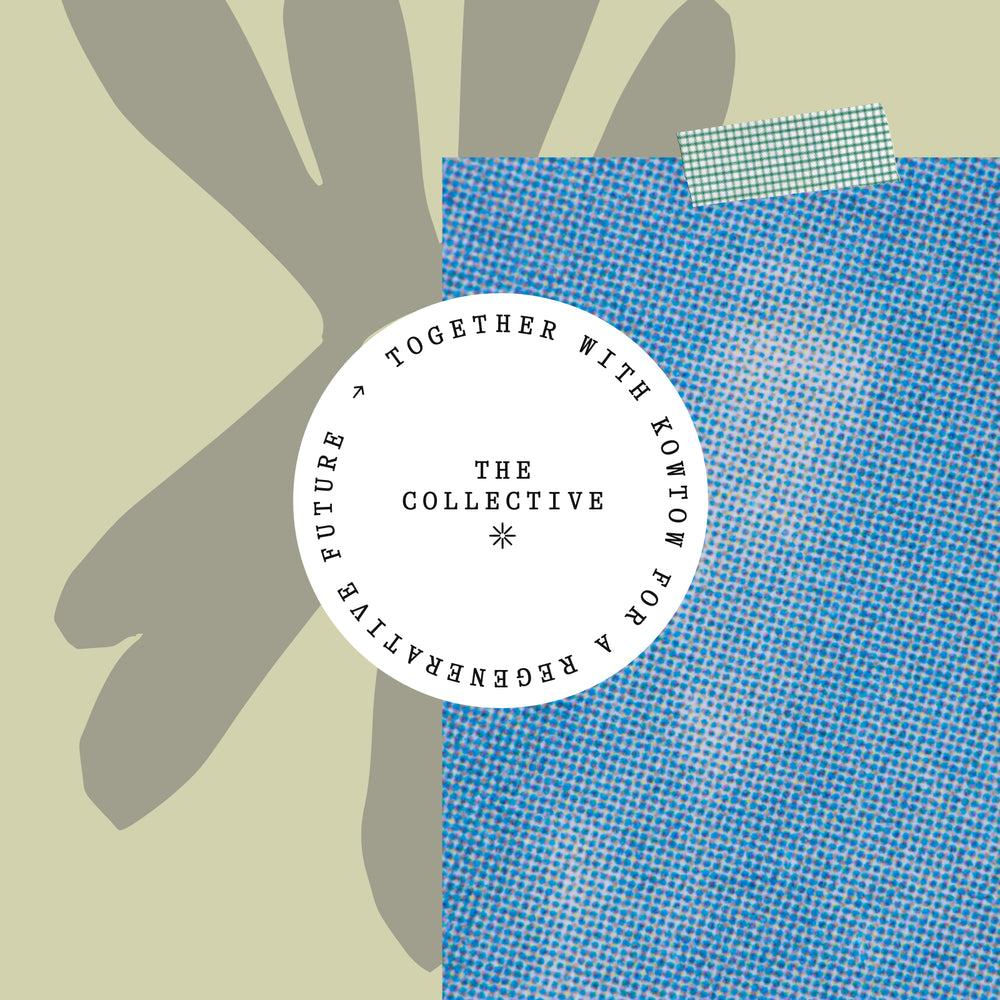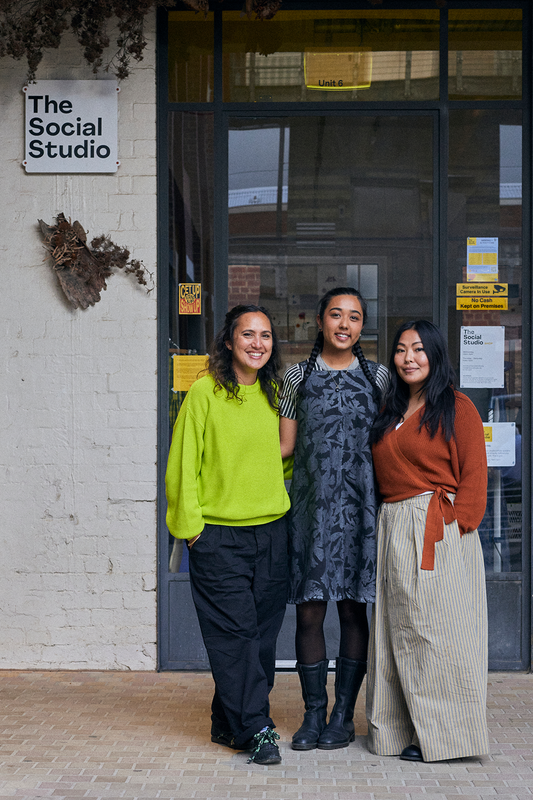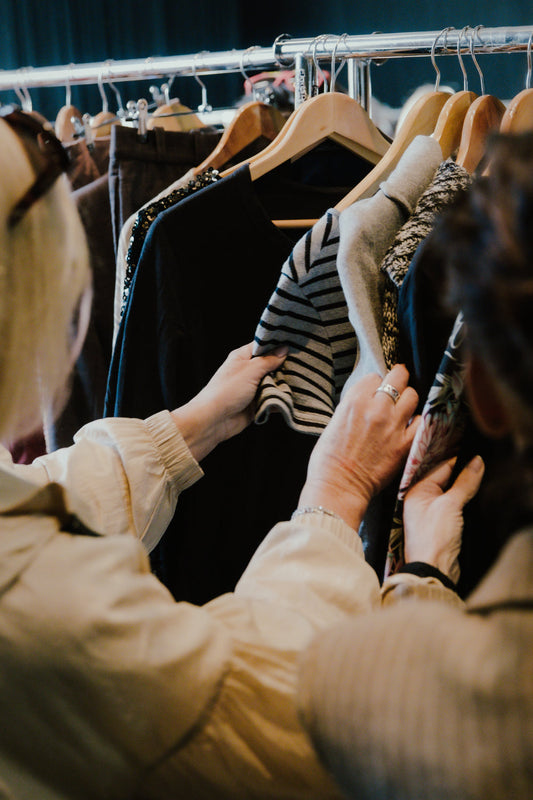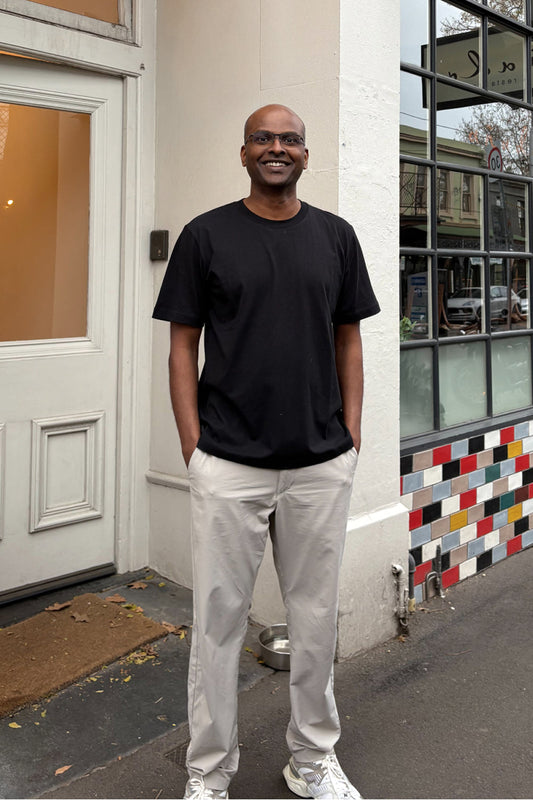At Kowtow, we recognise that modern slavery remains a critical issue in the fashion industry. We are dedicated to upholding the principles of fairness, transparency, and respect for human rights in all aspects of our business.
We believe in promoting fair and ethical practices throughout our operations, including all sourcing and production and have developed a Modern Day Slavery policy as part of our Sustainability Strategy.
Grace Forrest is a human rights activist and co-founder of Walk Free, an international human rights organization working to eradicate modern slavery. Through Walk Free, Grace Forrest has played a pivotal role in raising awareness about modern slavery, forced labor, and human trafficking.
Here, she helps break down what modern slavery really means, how it affects people and why legislation is the only way forward to make significant change.
We hear the term modern slavery often in the media and in the fashion industry, but what does it really mean and how does it affect people?
Modern slavery refers to the systemic referral of a person’s freedom, where one person is exploited by another, for personal or financial gain. It is an umbrella term we use to describe a number of highly exploitative practices, including forced labour, forced marriage, debt-bondage, human trafficking, and state-imposed forced labour.
All of these have in common that they refer to a highly exploitative situation a person cannot refuse.
Modern slavery occurs today on a totally unprecedented scale. There are some 50 million people living in modern slavery worldwide, and fashion remains one of the highest at-risk industries.
While fast fashion, no doubt, is driving the exploitation of people throughout its supply chains, there are also many high street and luxury brands that fail to provide any information about the people making their clothes. Without this, we have little hope of ever building a fair and transparent fashion industry.
Exploitation is so intertwined with the fashion industry because of its transnational and opaque nature. The production of a single cotton t-shirt can touch on average, a hundred pairs of hands throughout its life, from the growing and picking of the cotton, to textile spinning and dying, through to manufacturing and packaging. This means modern slavery is so prevalent in the world today, it's as close as the shirt on your back.
Unless a company can show you how they’re doing right by people and planet, you should absolutely assume exploitation is occurring within that brand. The unfortunate reality is ethical production remains the exception, rather than the rule in the fashion industry.
To understand more about modern slavery, its definitions, and its prevalence, see Walk Free’s Global Slavery Index.
Can you explain the work Walk Free is doing in its fight to eradicate modern slavery?
Walk Free works with governments, businesses, religious leaders and communities around the world to address the root causes of modern slavery.
We produce the Global Slavery Index, which is the world’s most comprehensive dataset on measuring and understanding modern slavery. It measures the prevalence of modern slavery in over 160 countries and analyses how each of those governments respond to it.
We use our research to advocate for stronger laws – nationally, regionally, and globally – to protect people from exploitation, such as strengthening labour laws. We work alongside companies and investors – big and small – to encourage ethical business practices. We also engage with faith leaders to respond to modern slavery instances within communities.
Fundamentally, Walk Free works to elevate the voices of survivors as leaders in this movement, because lived experience is expertise.
Walk Free’s Global Slavery Index tells us that in 2021, an estimated 50 million people were living in modern slavery on any given day. What can the fashion industry do to reduce the number of people working in these conditions?
Ending exploitation in the fashion industry requires industry-wide change. We have seen some (slow) progress, but few significant changes. The conversation on sustainability is gaining momentum, with more brands and companies looking at their environmental impacts and contributions to the climate crisis, however, many businesses that claim to be “sustainable”, fail to include worker’s rights in this equation.
Industry-wide change isn’t an outlandish idea - increasing the price of the average garment by just 1% could ensure a living wage for workers in the supply chains of major retailers. Understanding the true cost of garments is the next critical step, nothing is ever just cheap; it always costs someone something. Equally, consumers spending more money doesn’t always guarantee ethical production. What we need across the entire industry is visibility and basic working standards to ensure consumers don’t unwittingly come into contact with modern slavery every day.
Consumers need accessible, transparent information about supply chains, including material origins and production conditions. This should be the base-line standard in 2024, and we cannot underestimate the role we can all play in pushing for this information.
You recently visited Aotearoa, New Zealand to work alongside human rights experts, keen business leaders, civil society, legal experts, and ethical brands to push the government toward action on modern slavery laws. It's legislation we know needs to be implemented - what would legislation mean for NZ?
Essentially, if the proposed law changes go ahead, Aotearoa, New Zealand would have the strongest modern slavery laws in the region.
In 2023, the Labour government proposed a law that would require organisations making more than NZD20 million a year to publicly report on how they are working to prevent exploitation in their supply chains and operations. This would mean that companies would need to openly share the risks of modern slavery and worker exploitation in their operations, as well as the steps they are taking to prevent and address those issues.
Not only would this protect workers in Aotearoa New Zealand’s supply chains, but also bring the country in line with international standards set by its European counterparts. This would raise Aotearoa New Zealand’s profile as an international trading partner, while also setting a strong example of human rights in the region in line with Aotearoa New Zealand values.
Walk Free has been working with Aotearoa New Zealand on their response to modern slavery for many years – both large and small businesses have continued to show their support. It’s the government we are yet to see tangible action from. We are hoping that the current National government will soon reflect the strong support from its business community and human rights experts to eradicate modern slavery in the products that Kiwis buy and use every day.
How have you seen legislation change things for the better in other countries?
In the last decade, there have been significant improvements in modern slavery and transparency laws globally. Countries like the UK, Australia, France, and Canada have introduced new legislation, but the biggest change to date came from the European Union. The EU passed a law called the Corporate Sustainability Due Diligence Directive (CSDDD), which will require all 27 EU countries to ensure large companies evaluate their entire supply chains for human rights issues. This law requires businesses to take action to prevent exploitation (rather than just report on what the company is/is not doing), going beyond what countries like Australia and the UK already have in place. This is the kind of law we’d like to see in New Zealand.
While not all businesses are making changes, some are leading the industry. For example, Kowtow is setting high standards in the fashion industry by committing to Fairtrade, using organic cotton, and producing plastic-free collections.
Although the fashion industry hasn’t progressed nearly as quickly as needed, brands like Kowtow show that it is possible to create transparent supply chains that benefit workers and the environment, all while staying successful in the market.
Creating real, lasting change will take time, but each of us can start with our wardrobes. To quote Vivienne Westwood, we should all strive to “buy less, choose well, and make it last.”
And act like what you do matters, because it does.




